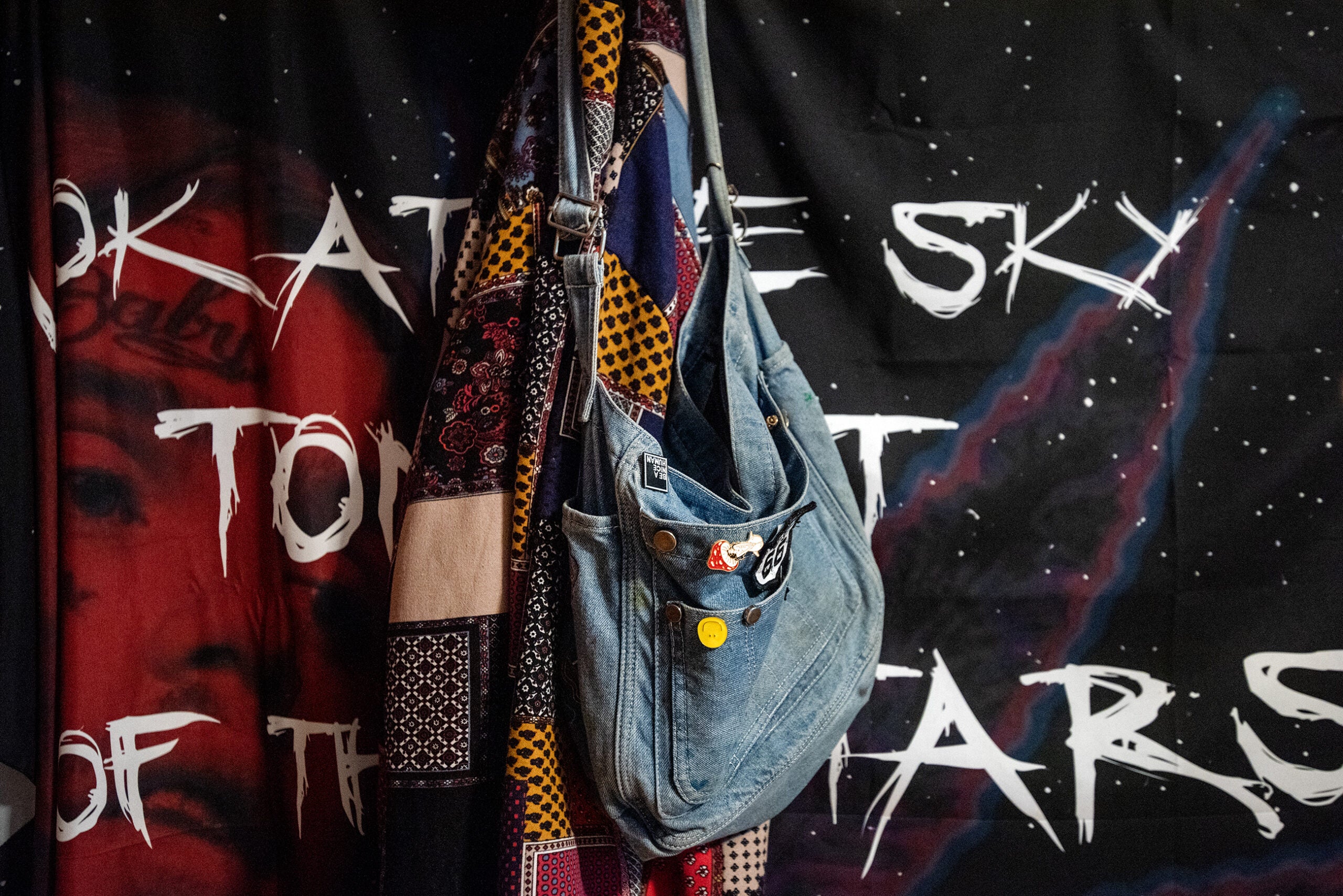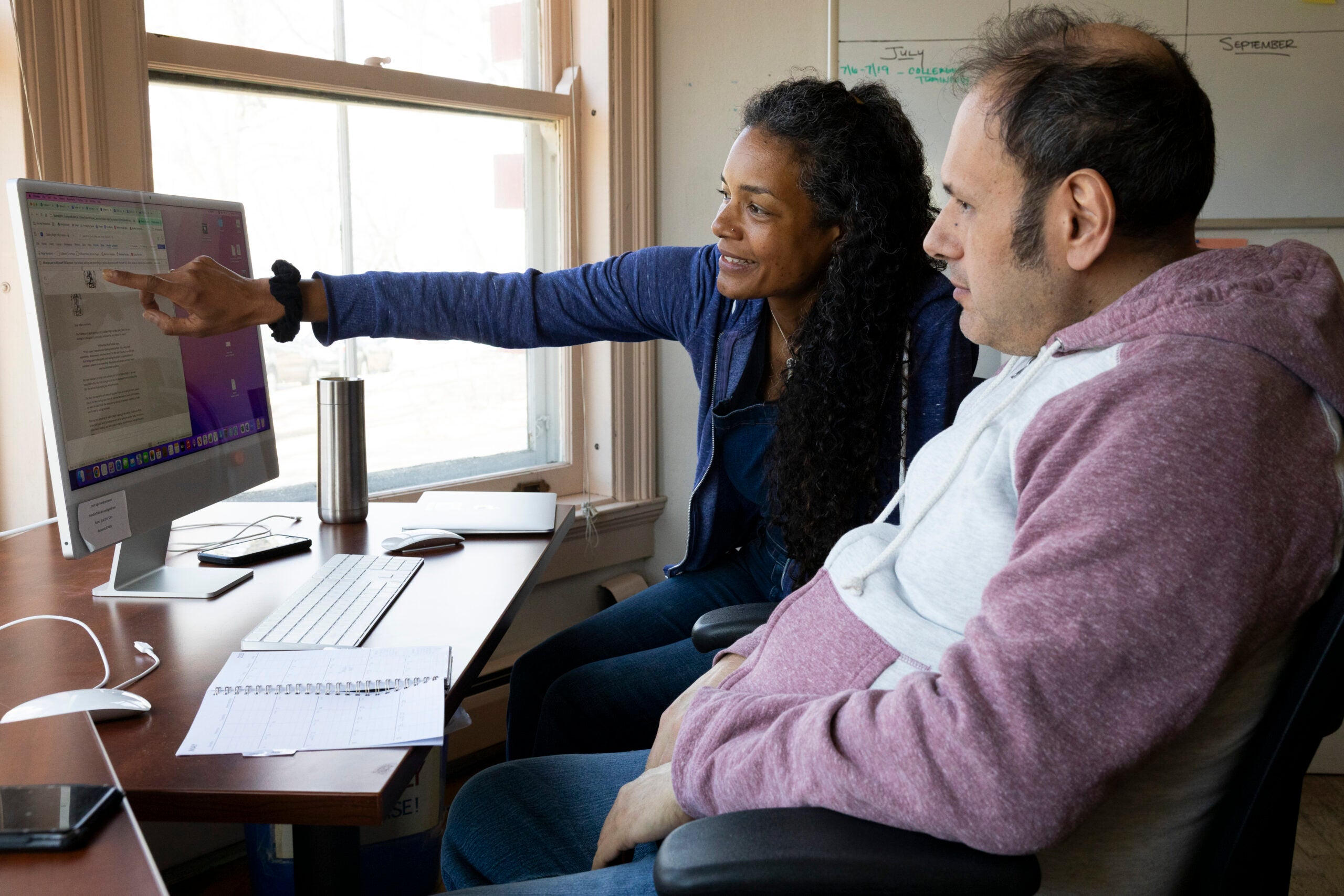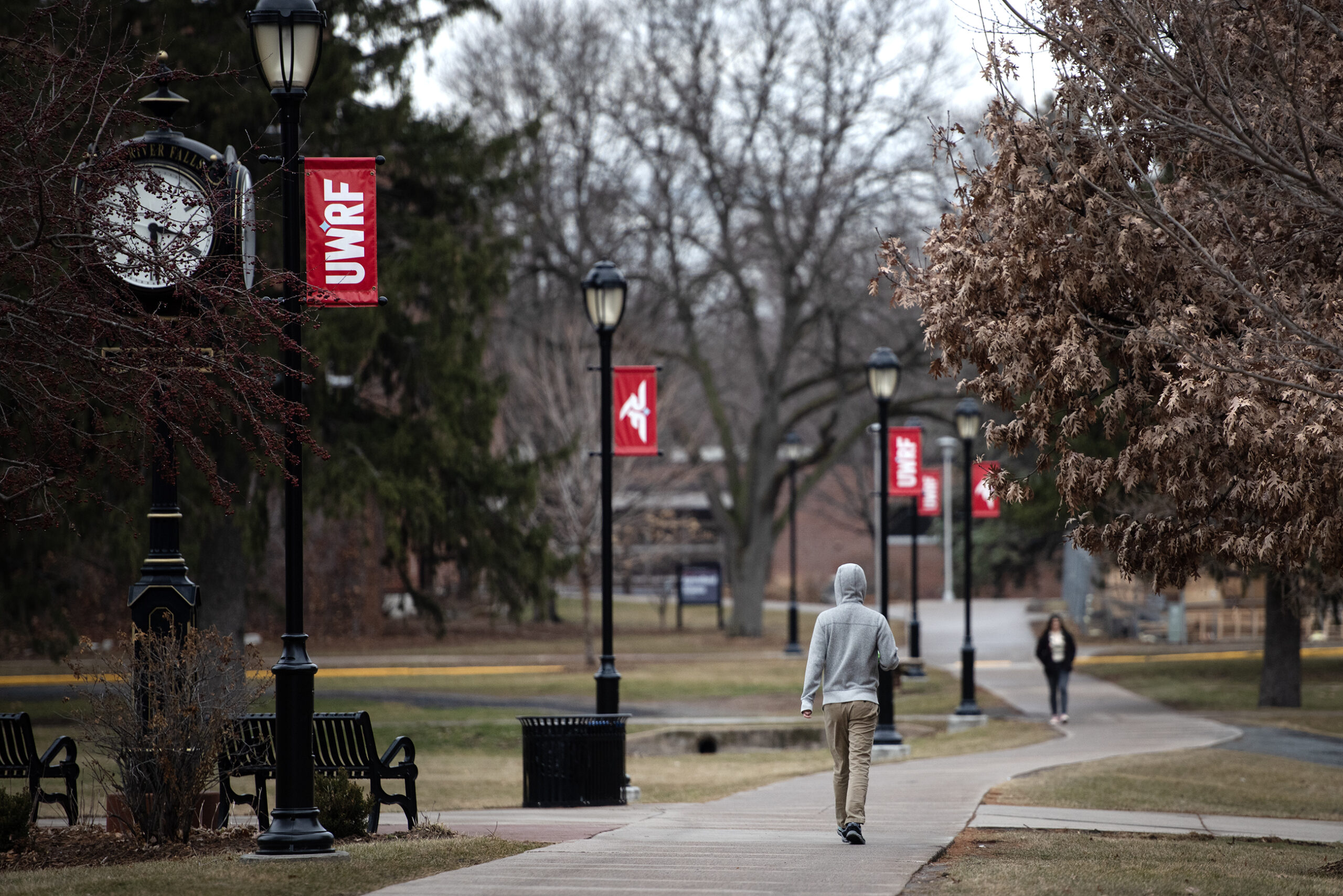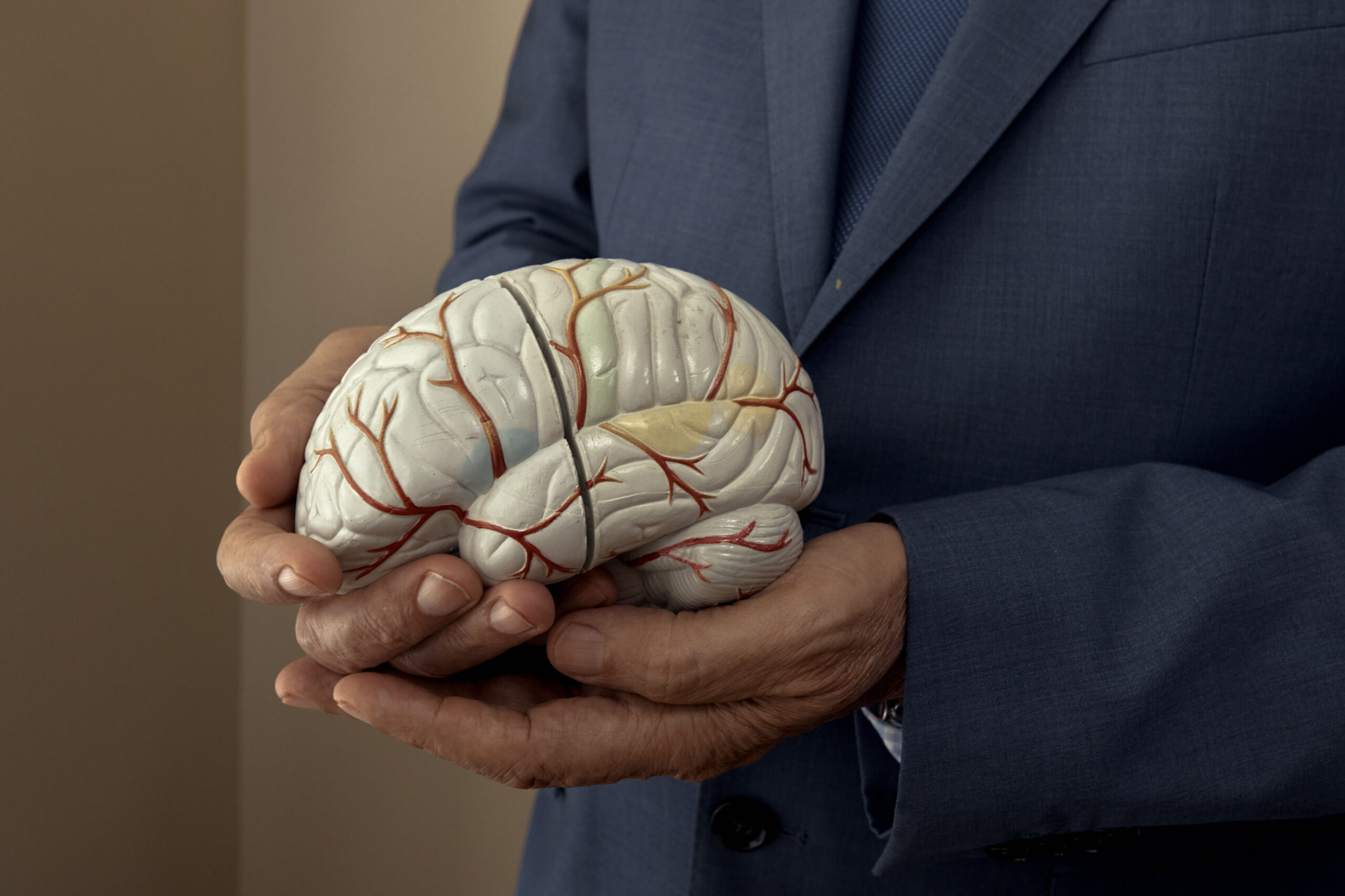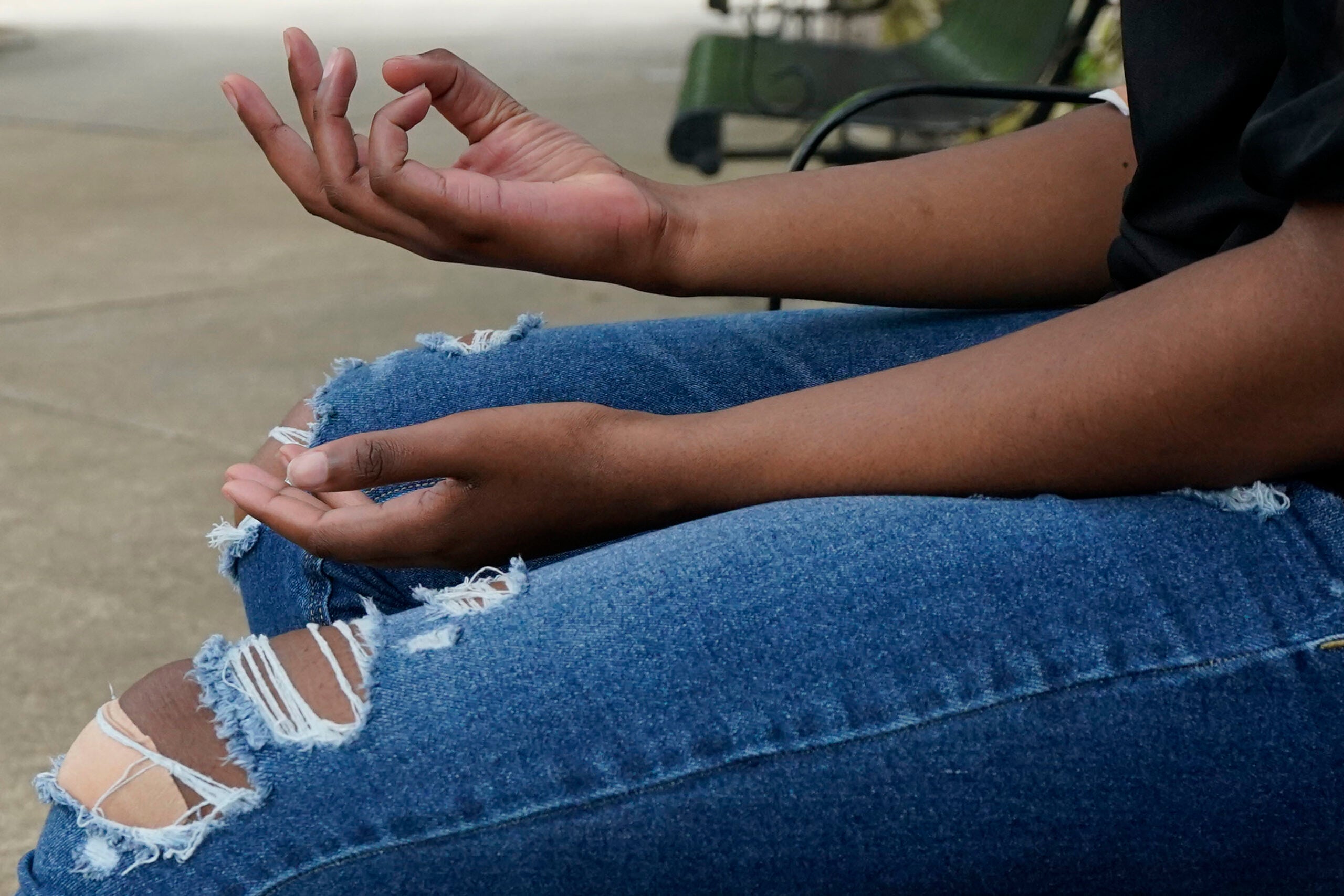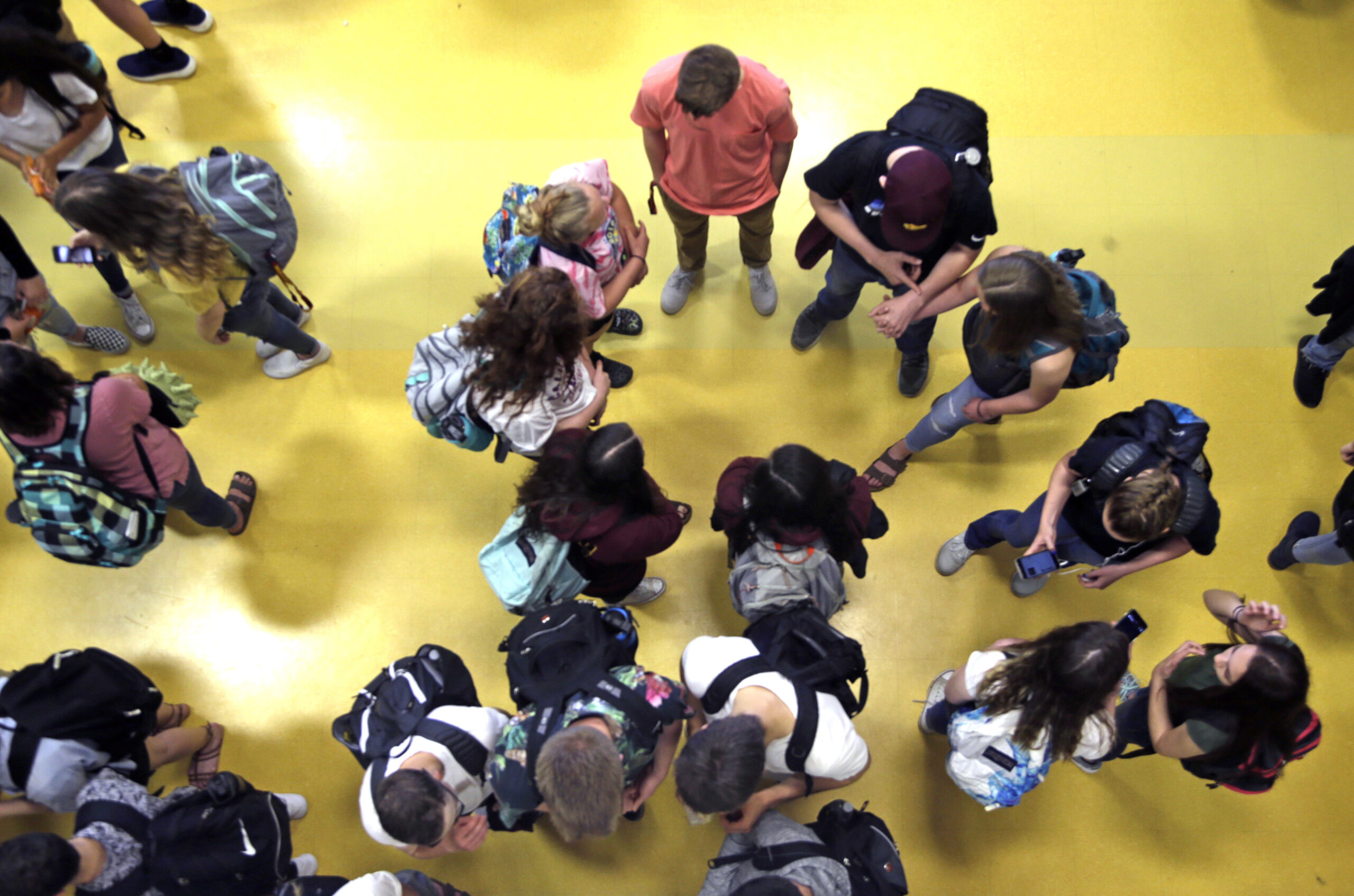Editor’s note: This story is part of an occasional series on youth mental health and Wisconsin’s efforts to address it. The story contains descriptions of self-harm that may be upsetting to some readers.
Christine Gehrke returned home from parent-teacher conferences last spring and found blood on her bathroom floor.
Immediately, Gehrke ran to find her daughters. In a bedroom, her 17-year-old was sobbing. Next to her was her 15-year-old. She appeared to be bleeding everywhere.
Stay informed on the latest news
Sign up for WPR’s email newsletter.
“My oldest daughter had just walked into the bedroom at the very moment that the younger daughter had been self-harming,” Gehrke said. “She had probably 100 or more large, long, deep cuts in her arms and legs. And we had just found that out.”
Gehrke, a teacher in the Fox Valley, was one of many parents to share her story through WPR’s WHYsconsin about access to mental health resources in the state.
Parents gave examples of trying to get help for their children, only to be met with months-long waiting lists to see counselors.
“I’m a pediatrician. Most therapy offices are either not accepting new patients, don’t accept the patient’s insurance, don’t accept children under a certain age, or have a three- to six-month waiting list,” one respondent said. “Schools and doctors are doing their best, but these children need therapy and support.”
Gehrke said she wanted to share her story as a wake-up call for parents and policymakers.
“If a parent wants to be proactive and help their child, the difficulties are almost insurmountable,” she said. “It’s a landscape that if the government were to get involved, it might make all the difficulties much smoother. If I can help any other mom, I would be glad to do that.”
Long delays
During his state budget address last year, Gov. Tony Evers declared 2023 the “Year of Mental Health.” His biennial budget proposal included a $500 million boost to spending for overall mental health, including $270 million to expand services in schools.
Much of that funding was slashed during the legislative budget process.
Still, for years, Wisconsin has increased spending for youth mental health services. But the struggles Gehrke experienced in trying to find help for her daughter show just how difficult a problem treating youth mental illness still can be.
Over the last year, Gehrke said her family has faced delays in finding care and a lack of communication with health care providers and insurance companies.
She has questioned many times whether her daughter will ever get the help she needs.
WPR is not naming Gehrke’s daughter because she is a minor. In order to avoid identifying her daughter, WPR is also using a name other than the one Gehrke is known by.
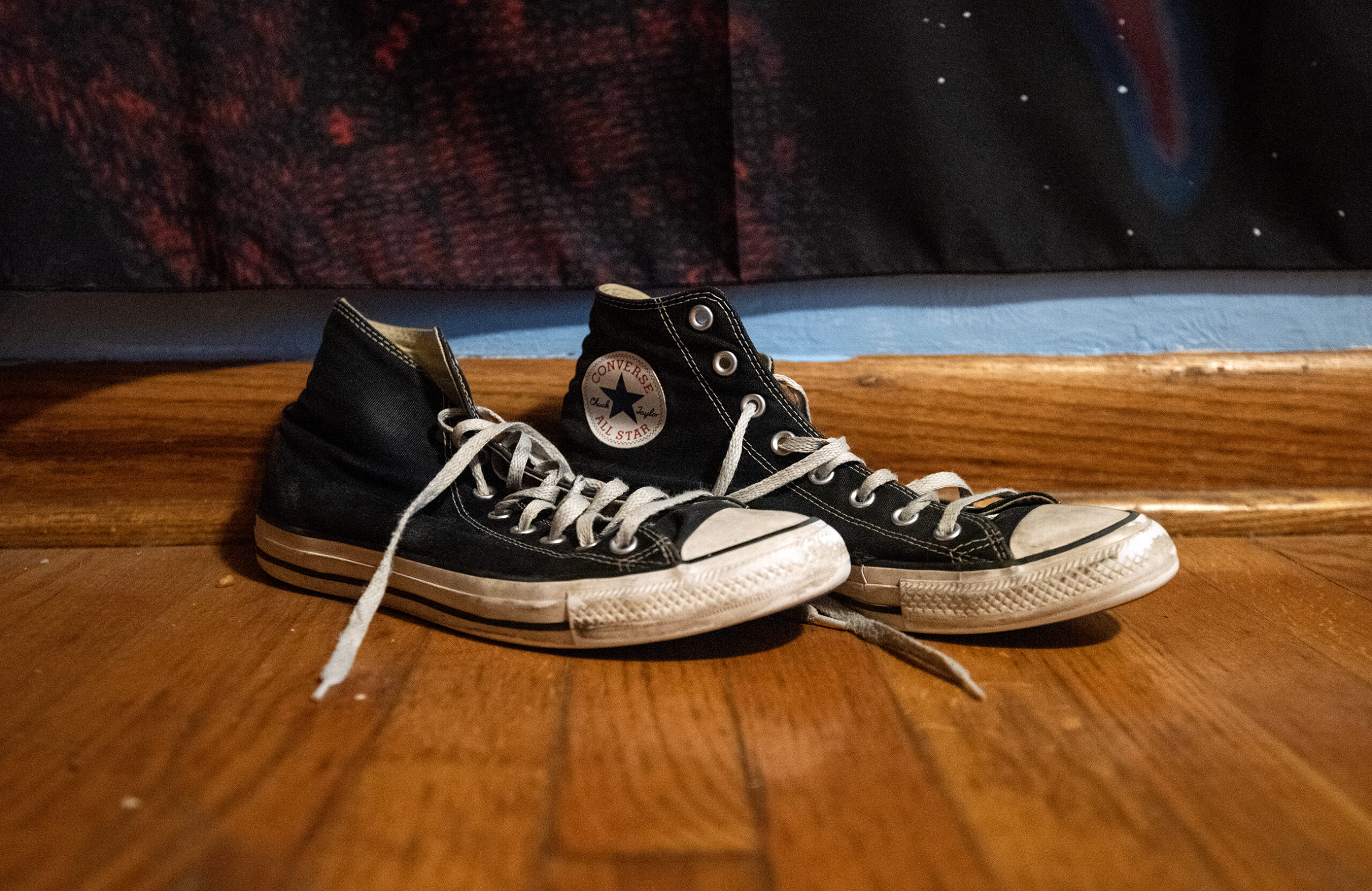
Family sent daughter to multiple facilities for help
The evening Gehrke found her daughter on the floor, her family spent more than six hours in the emergency room, while staff tried to find an inpatient psychiatric room for the teen.
The girl was sent to a facility in Green Bay, where she stayed from March 1 to March 7, 2023, Gehrke said.
During that time, Gehrke said she called the facility every day, trying to speak to her daughter or find out information on her condition, but was unable to talk with anyone.
Frustrated at the lack of communication, Gehrke’s husband drove to Green Bay and brought their daughter home.
Through summer, the teen was hospitalized three more times.
She went to a day treatment program in Sheboygan from June 25 through July 7 for an eating disorder.
From Aug. 1 through Aug. 11, she was at an inpatient hospital in Oconomowoc for depression. Beginning Aug. 14, she was inpatient in Brown Deer for depression, then transferred to Oconomowoc through Aug. 20, according to Gehrke’s records.
Gehrke said her daughter, now 16, is in school part-time. She continues to self-harm.
“She does have periods of time where, yes, she has planned to commit suicide but has not completed it,” Gehrke said. “The self-harm was because she wanted to show on the outside what she feels on the inside. Even now, her scars are healing and she is not happy about that.”
Before she got sick, the young girl loved the outdoors. The family would bike and kayak together. The teen would read for days straight.
“She read the entire ‘Twilight’ trilogy multiple times and was writing her own 150-page book with some friends, each taking a different role writing from their own unique viewpoint,” Gehrke said.
Her daughter’s grandparents have been saving for her college education since she was born. Most in the family have degrees in education.
Gehrke is hoping one day her daughter will be healthy enough again to be successful in school.
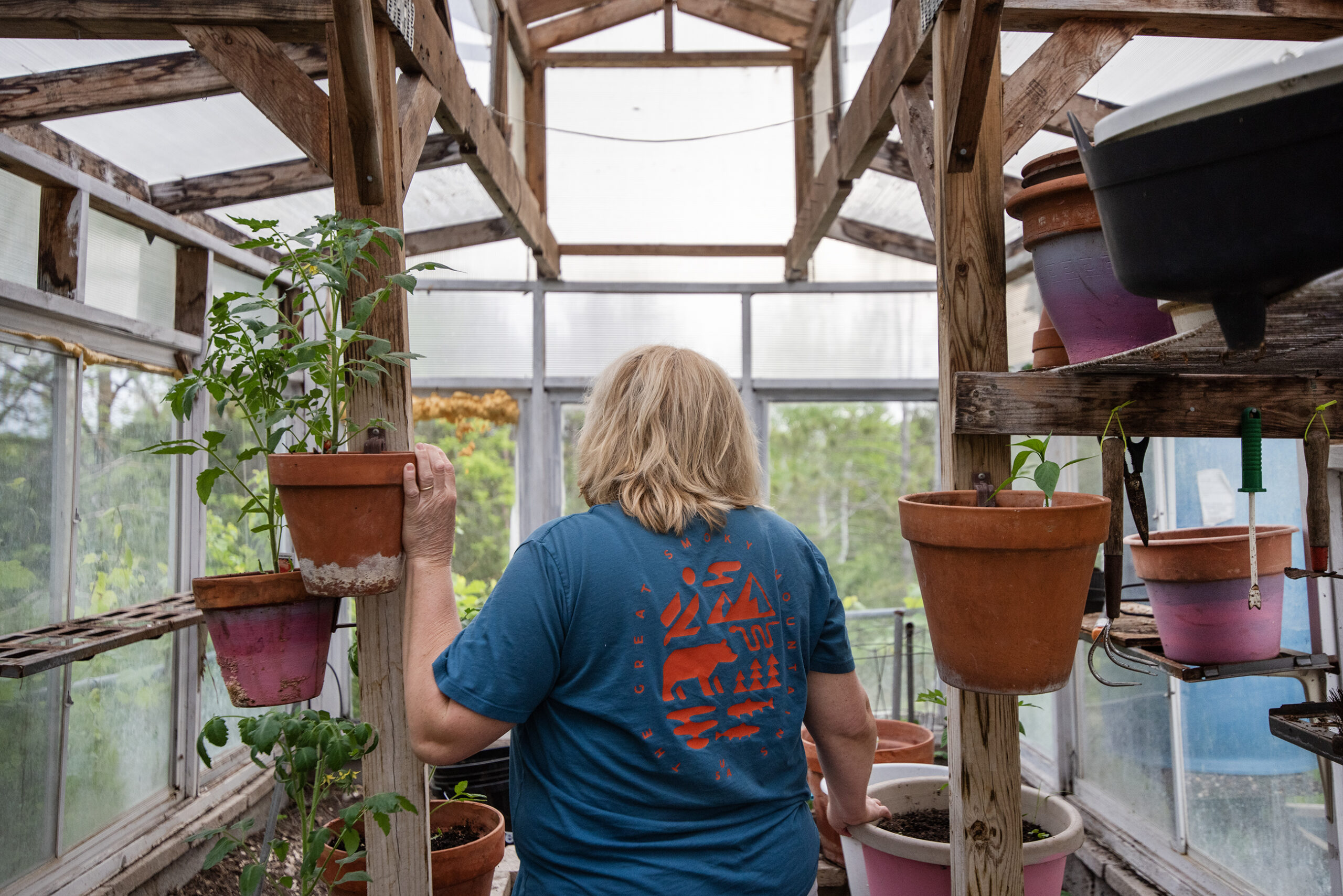
A ‘broken’ mental health system
While all teens are reporting increased mental health challenges, girls and LGBTQ+ youth are faring worse than boys across nearly all measures.
In 2021, nearly 3 in 5 U.S. teen girls said they felt persistently sad or hopeless — double the number of boys who said the same, according to data from the Centers for Disease Control and Prevention. That’s a nearly 60 percent increase from the previous decade.
The CDC conducts a youth risk behavior survey every two years. The 2023 data will be released in the fall.
In Wisconsin, the results are similar.
One in 4 girls here are seriously considering suicide, said Linda Hall, director of the Wisconsin Office of Children’s Mental Health.
During a recent interview with WPR, Hall was blunt about the issues facing teens and their families: “The mental health system is broken.”
“If you want to get a mental health appointment, you have to wait four to six months,” Hall continued. “Well, if a kid is in crisis, you know that is not the answer. … We have a system that doesn’t encourage people to get mental health treatment early on, when it would really be helpful.”
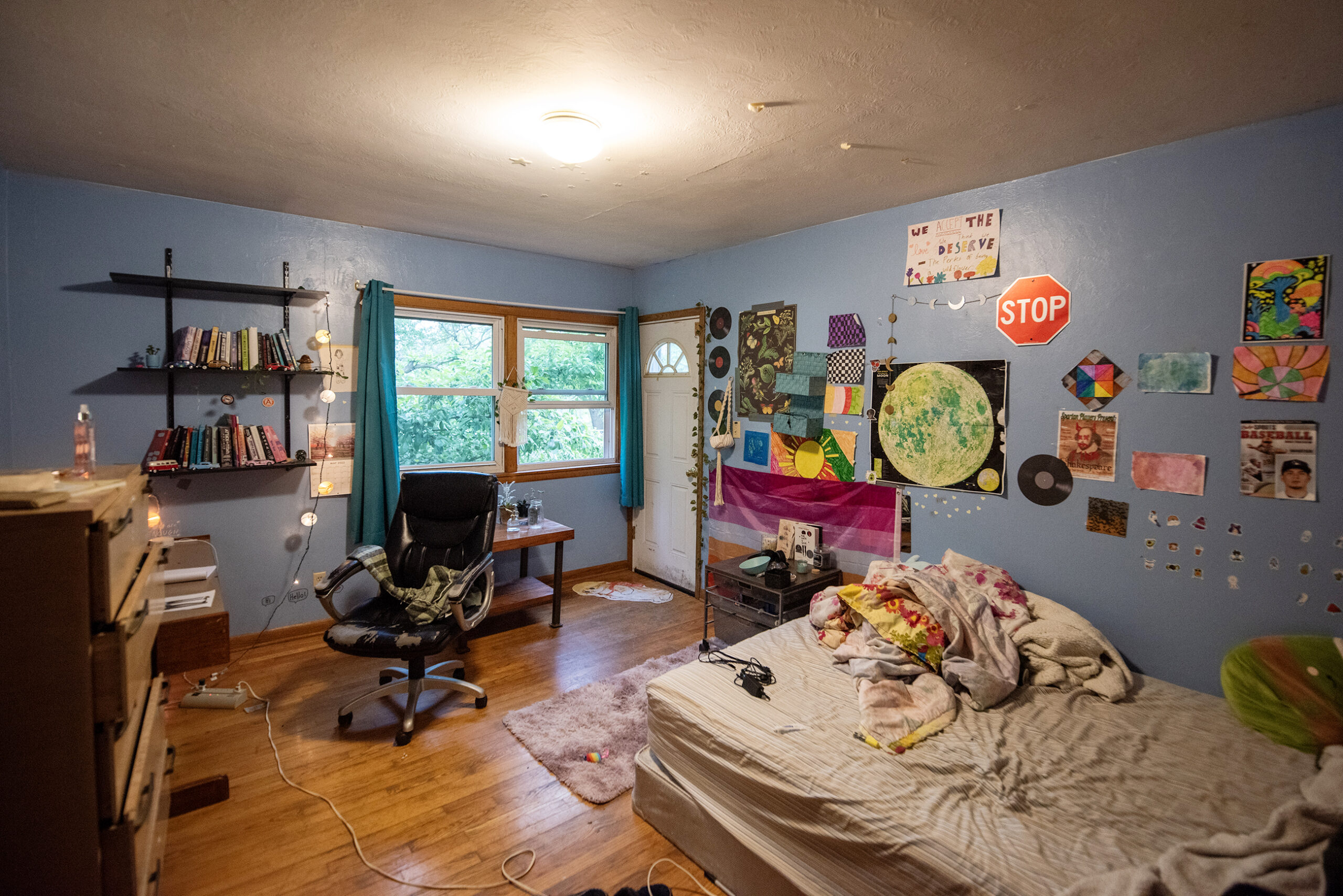
Feelings of belonging can help ease depression
Over the past decade, there’s been a steady increase in monthly visits to UW Health Kids’ emergency department for mental health reasons, according to the health system.
There were about 15 patients a month at the pediatric emergency department for psychiatric care in 2012. That jumped to 40 patients per month in 2022.
Hall said young people want to feel heard and they want to feel like they belong.
She said anxiety and depression increases when people feel undervalued, so building a foundation of support early on in a child’s life is key.
Many times, Hall said, young people who are struggling stop going to school. But being in school can be the best place for them.
“We look a lot to school for mental health,” Hall said. “Less than half of kids who have a mental health diagnosis get treatment. And of those who do, 75 percent are getting something through school.”
Gehrke’s daughter began changing when she was 13.
She stopped socializing with her parents and sister, instead spending most of her time on her phone in her bedroom. Her depression began to take the form of an eating disorder, as well.
“We knew it wasn’t a good thing, and we noticed that she would eat very little or nothing at all,” Gehrke said. “But we didn’t know she was buying laxatives.”
Gehrke, who has been a teacher for more than 20 years, admits she and her husband had a blind spot with their daughter.
Gehrke believes her excessive cellphone usage contributed to her mental health downturn.
“To be honest with you, we kind of ignored it,” she said. “We should have been more consistent in saying, ‘You can only be on your device from this time to this time.’”
At the same time, Gehrke’s daughters were both on nearly year-long waiting lists to see counselors. Gehrke said she would like to see the government pay for counselors to go to school, and then work in the state.
“We deserve to have resources at our disposal, and we don’t have that,” Gehrke said. “Keep an eye on your daughters and their friends. If she spends a lot of time alone, don’t wait like we did.”

Where to get help
The Office of Children’s Mental Health does not provide mental health services. But it does offer resources for families and young people.
Uplift WI: Anonymous, confidential, support from certified peer specialists. Call 534-202-5438 from noon until midnight.
Teen Line: Teen peer support. Text TEEN to 839-863 from 8 p.m. to 11 p.m. Call 800-852-8336 from 8 p.m. until midnight.
NAMI Teen & Young Adult HelpLine: Peer support for teens and young adults. Text FRIEND to 62640 or call 800-950-6264 Monday through Friday from 9 a.m. until 9 p.m.
Love is Respect: Information, support, and advocacy for young people with questions or concerns about their romantic relationships. Text LOVEIS to 22522. Call 866-331-9474.
Parent Stress Line: Trained volunteer counselors. Call 800-632-8188.
Wisconsin Public Radio, © Copyright 2025, Board of Regents of the University of Wisconsin System and Wisconsin Educational Communications Board.
